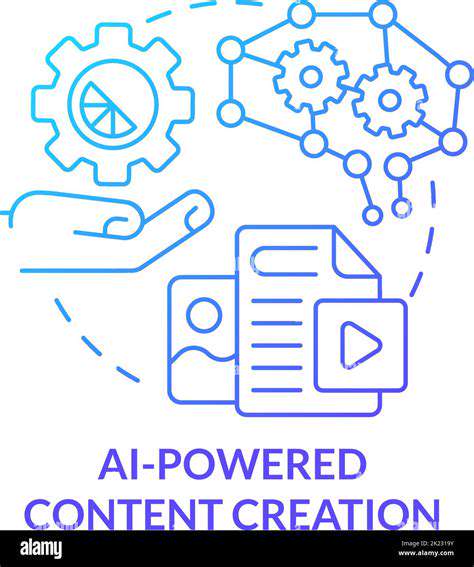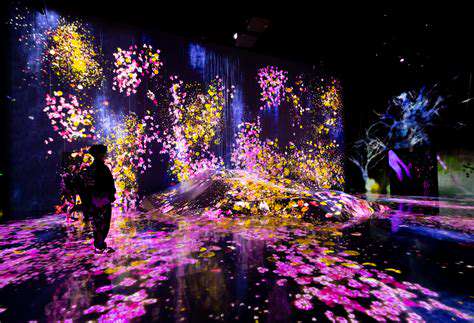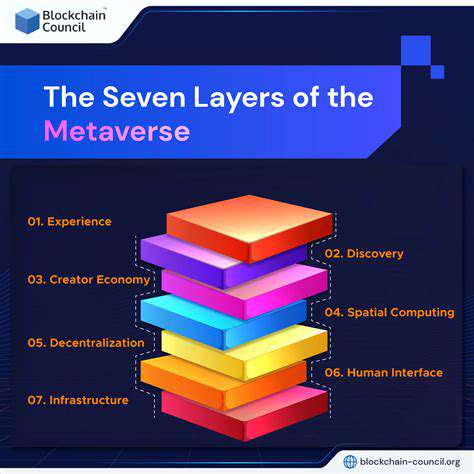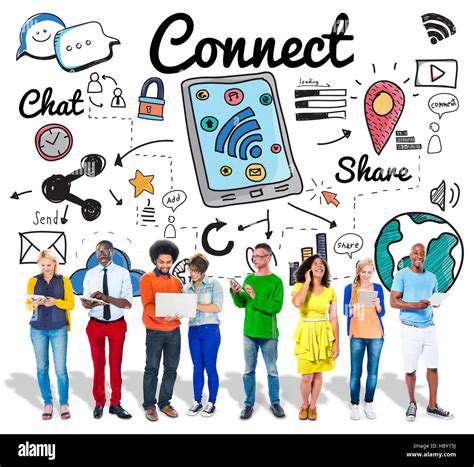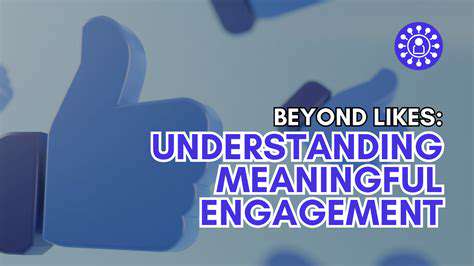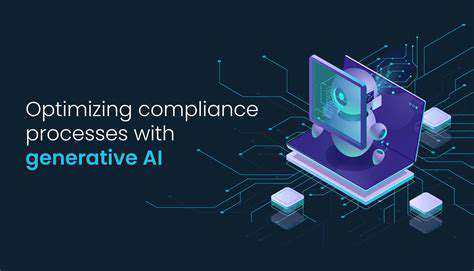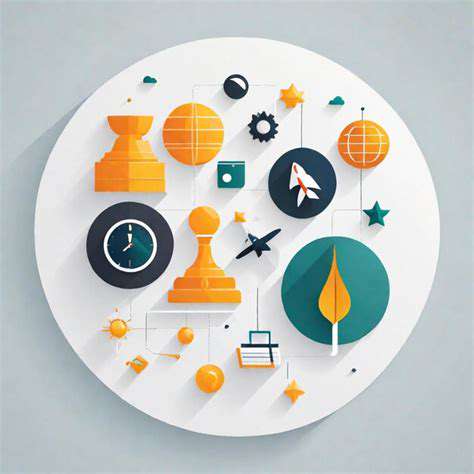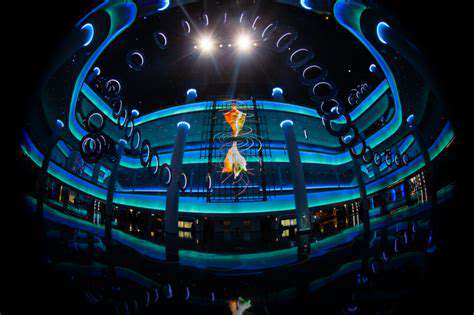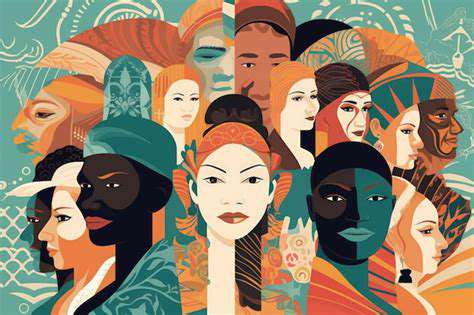From Passive Consumption to Active Participation: Immersion's Role
Picture this: You're standing in a museum, but instead of staring at dusty artifacts behind glass, ancient warriors materialize before your eyes, their armor glinting as they demonstrate forgotten combat techniques. Augmented reality (AR) doesn't just show information - it weaves digital magic into our physical surroundings. This revolutionary approach transforms passive observation into hands-on discovery, making learning feel more like time travel than textbook study.
In medical schools across the country, students are ditching plastic models for holographic patients. With AR, future surgeons can peel back virtual tissue layers, practicing delicate procedures until their movements become second nature - all without risking a single real-life complication.
Virtual Reality: Escapism and Enhanced Interaction
Remember childhood games where a cardboard box became a spaceship? VR takes that imaginative leap and multiplies it exponentially. Suddenly, your living room transforms into the surface of Mars, complete with swirling dust storms and low-gravity movement. Therapeutic applications are particularly groundbreaking, with stroke patients regaining mobility by catching virtual butterflies that adapt to their improving range of motion.
Interactive Storytelling and Narrative Experiences
Gone are the days when historical documentaries meant nodding off to a professor's monotone. Now, students don VR headsets and find themselves on the decks of Revolutionary War ships, feeling the virtual salt spray as they help plot naval strategies. This isn't just watching history - it's rewriting how we connect with knowledge, turning every lesson into a choose-your-own-adventure epic.
Gamification for Enhanced Learning and Motivation
Corporate training modules have undergone a radical makeover. Sales teams no longer groan through PowerPoints - instead, they compete in virtual pitch competitions where animated clients react in real-time to their presentation skills. The dopamine hit of leveling up transforms dry material into something employees actually look forward to mastering.
Personalized Learning Experiences: Tailoring Engagement
Imagine a language app that doesn't just adjust difficulty, but redesigns entire virtual environments based on your interests. Food lovers practice Spanish in a bustling Barcelona market, while architecture buffs navigate conversations through Gaudi's surreal buildings. This hyper-customization means no two learning journeys look alike, yet all roads lead to fluency.
Sensory Integration for Multifaceted Experiences
The most powerful VR simulations engage multiple senses simultaneously. Firefighter trainees don't just see flames - they feel the heat through haptic suits, hear crackling timbers through 3D audio, and even smell simulated smoke. This multisensory approach creates muscle memory that could one day save lives in real infernos.
The 2024 Sustainable Travel Report uncovered that nearly 8 in 10 travelers now actively seek eco-friendly lodging options - a dramatic surge from pre-2020 figures. This isn't just a trend - it's a complete redefinition of luxury travel values. Resorts like Six Senses prove sustainability sells, maintaining near-capacity bookings despite charging 30% premiums for their carbon-neutral villas.
The Future of Participation and Immersion
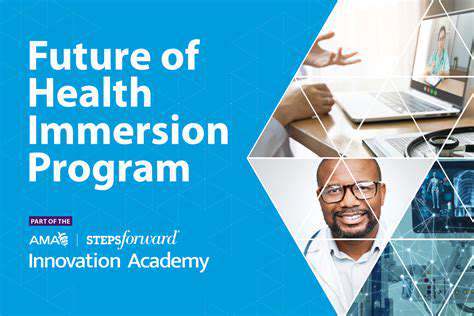
The Evolving Landscape of Participation
Remember when joining the conversation meant physically attending town halls? Today, digital platforms have turned global discourse into a 24/7 phenomenon where a teenager in Jakarta can shape policy debates in Johannesburg. This accessibility revolution has flipped traditional power structures upside down, giving voice to communities historically excluded from decision-making tables.
The Role of Technology in Facilitating Participation
Modern protest movements tell the story - what once required months of flyer distribution now organizes millions through encrypted messaging apps. But there's a dark side: these same tools can spread conspiracy theories faster than fact-checkers can debunk them. The challenge isn't just enabling participation, but cultivating digital spaces where truth outweighs sensationalism.
Accessibility and Inclusivity in Participation
While urban centers enjoy 5G connectivity, rural communities often struggle with dial-up speeds. This isn't just about Netflix buffering - it's about who gets to participate in the digital public square. Innovative solutions like mesh networks and satellite internet are beginning to close these gaps, but the work is far from finished.
The Impact of Participation on Decision-Making
City planners in Barcelona have crowdsourced urban design through VR simulations, letting residents walk through proposed developments before ground is broken. This radical transparency prevents costly mistakes and builds community buy-in - imagine if every infrastructure project adopted this approach.
Challenges and Opportunities in Managing Participation
Moderating online discussions at scale would give Solomon a headache. New AI tools can flag toxic comments, but they risk over-censoring nuanced debates. The sweet spot? Hybrid systems where algorithms surface potential issues for human moderators to evaluate contextually.
The Future of Participation in the Digital Economy
The rise of DAOs (decentralized autonomous organizations) hints at what's coming - internet collectives where token holders vote on everything from software updates to budget allocations. It's messy, exhilarating, and might just reinvent corporate governance.
Measuring and Evaluating the Effectiveness of Participation
Vanity metrics like likes tell us nothing about meaningful engagement. Forward-thinking organizations now track action conversion rates - how many commenters attend real-world meetings, or how many petition signers become monthly donors. True participation isn't about noise - it's about measurable impact.
